Towel Warmer Buying Guide – Are They Worth It? How To Choose The Best One
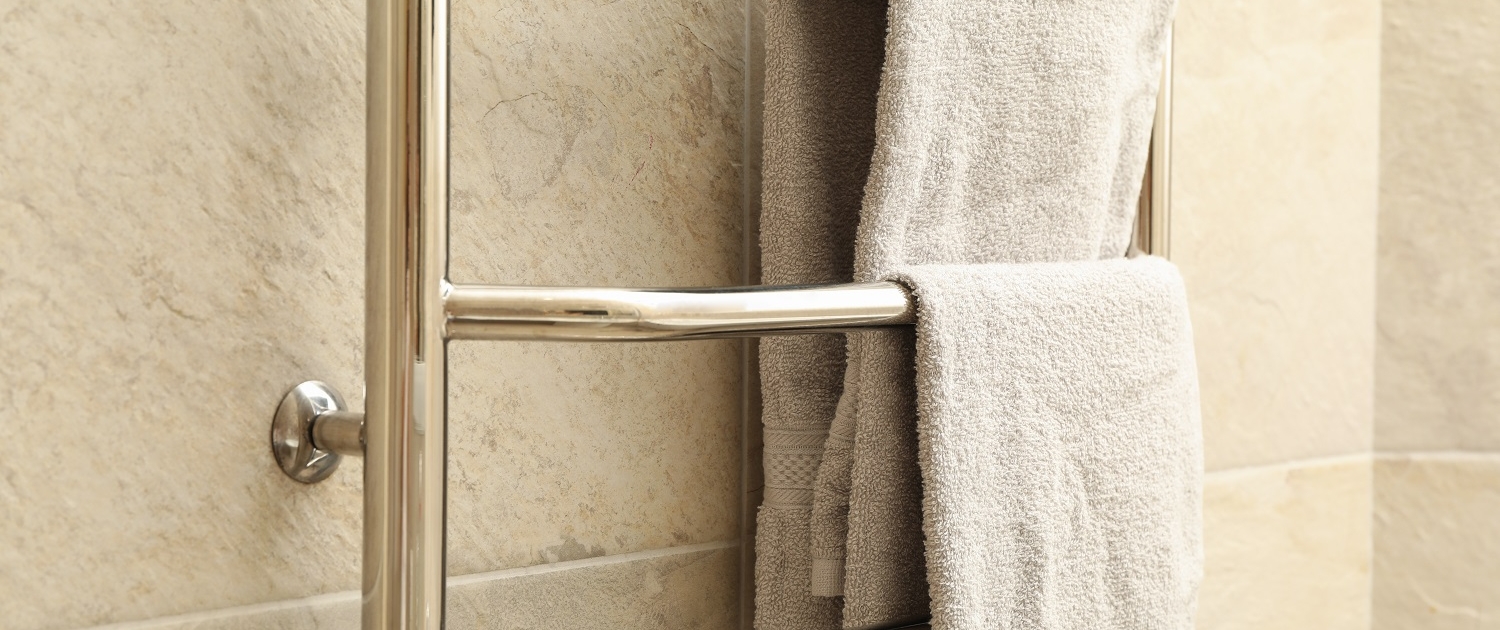
You may have come across a towel warmer when you were on vacation at a fancy hotel. But as technology advances, these once luxury appliances are becoming cheaper and more practical for the home.
For anyone who doesn’t know, a towel warmer is exactly what it sounds like: a radiator-type appliance that keeps your bathroom towels warm while also providing radiant heat to the room.
If you hate stepping out of your shower into a cold bathroom than one of these appliances would be great for you – especially if you live in a particularly cold region of the country.
A good towel warmer will make your bathing experience a bit more enjoyable and can be a big help if you have a large family that shares towels.
They can also be used to reduce humidity and the risk of mold and mildew developing in your bathroom, basement, kitchen or garage.
While towel warmers are gaining in popularity for home use there are still a lot of questions surrounding them. You may be interested in purchasing one but not know very much about them.
Fear not! In the following guide we will be telling you everything you need to know about towel warmers and how to choose the best one for your home!
Things you Need to Consider When Buying A Towel Warmer
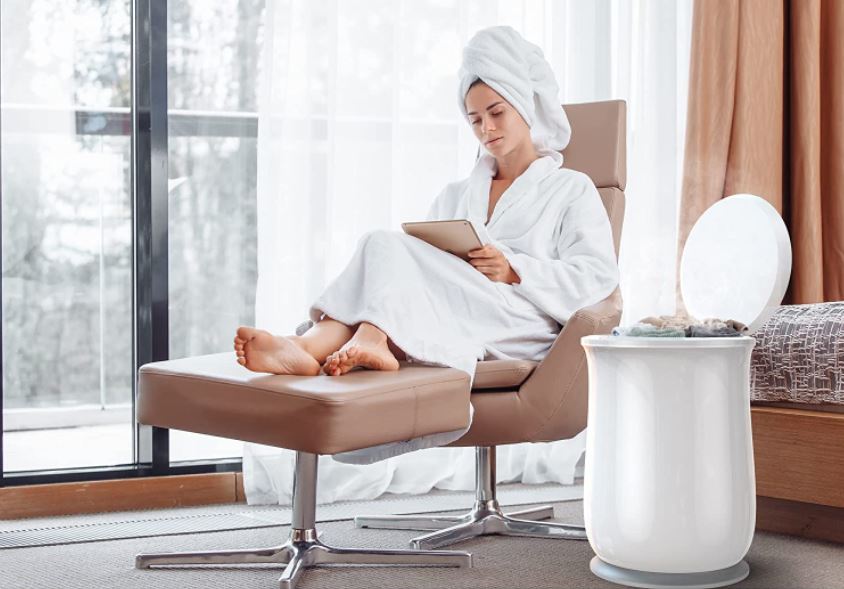
The first step towards getting the right towel warmer for your home is considering some key aspects.
Mainly, you will need to consider where the towel warmer is to be placed. Then you can start to examine the specific types of towel warmer that would work in your home. Fuel type, cost and size should also be considered.
Let’s take a closer look at each factor:
- Where’s it Going to be – Depending on the electricity and plumbing hookups of your home, you may be limited to certain types. For that reason you will need to consider where you plan to use your towel warmer. Also, consider the placement of electrical outlets and plumbing hookups.
- Size – These appliances come in a variety of sizes. Some even have integrated shelves for storage. But your bathroom may not be able to accommodate larger units. Also, know that the larger the surface area of the towel warmer, the faster it will be able to warm your towels and the more towels it will be able to warm at once.
- Cost – The size, capacity, features and design of towel warmers will all affect the price. You can get some economy models for around $200 or you can go all-out and splurge on a $3000+ plus model. There are plenty of options: you just have to choose the one that fits your budget.
- Effectiveness – Like pretty much every home appliance, not all towel warmers are made equal. You will want to take a look at a good amount of towel warmer reviews to see which are the most effective and reliable.
- Type – We will get into the details of all the different types of towel warmers in just a moment. For now though, be aware that there are two main types of towel warmers: electric and hydronic. The type you choose should depend on your utility hookups and whether or not you want to spend a bit more on your water/heating bill or your electricity bill.
Hydronic Vs. Electric Towel Warmers
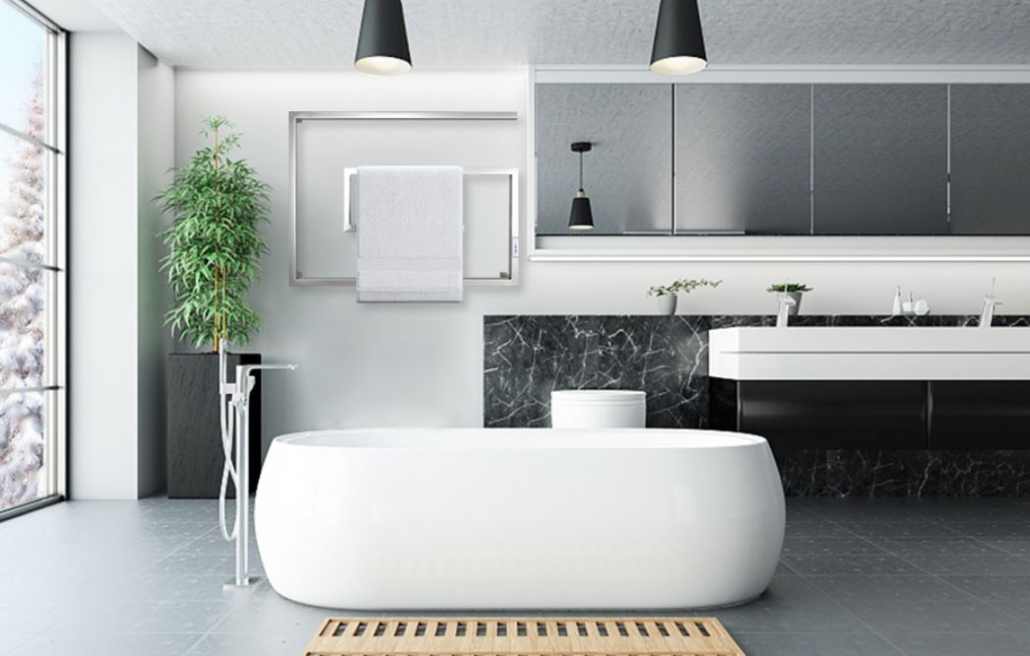
As we mentioned, the two major types of towel warmers are hydronic and electric warmers. Let’s take a look at each one:
- Electric Towel Warmers – Electric towel warmers use an internal heating element to warm your towels. The heating element can be dry or it can heat up mineral oil. You can also hard wire the unit into your home’s electrical system or it can be a standalone plug-in appliance. Electric towel warmers are typically easier to install and consume very little electricity. However, they may not be as energy-efficient as hydronic towel warmers.
- Hydronic Towel Warmers – Hydronic units use your home’s water heater to feed heated water into the appliance which is then used to warm your towels. These appliances can be linked directly to your hot water heater or they can use a separate, dedicated hydronic heating system to access heated water. Hydronic warmers tend to be the most difficult to install but could offer more energy savings.
Types of Towel Warmers
Now that you have a general idea of the two main types of towel warmers, it’s time to start getting into the details of the sub-types.
You can easily find any of the following types of warmers at your local hardware store or online so it’s good to brush up on them before you actually start shopping.
Central Heating Towel Warmer
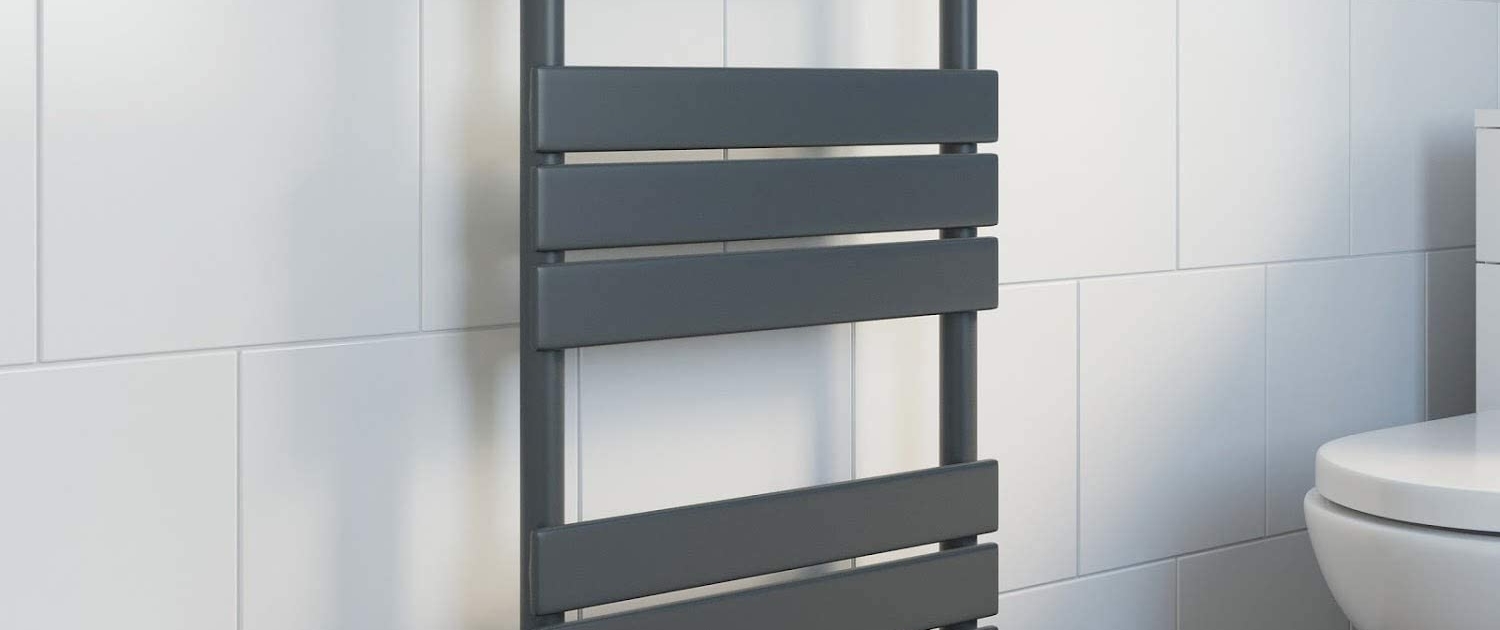
A central heated towel warmer is very much like the old-time radiators that were once commonly installed in the rooms of houses.
These types are connected to your central heating system, usually via the panel radiator in the bathroom.
Key Features:
- Quick heating
- Low electricity consumption
- Can also heat the room
Pros:
- Great for older houses
- Good for larger bathrooms
- Works much like a normal radiator
Cons:
- May not be an option for some homes
- They can be dangerous
Central heating towel warmers are great for when you also want to keep the ambient temperature of a room relatively high.
They would be a great option for anyone who lives in colder climates and may even be useful to keep garages warm.
Overall Score: 92/100
Check Out More Reviews Here:
Electric Only Towel Warmer
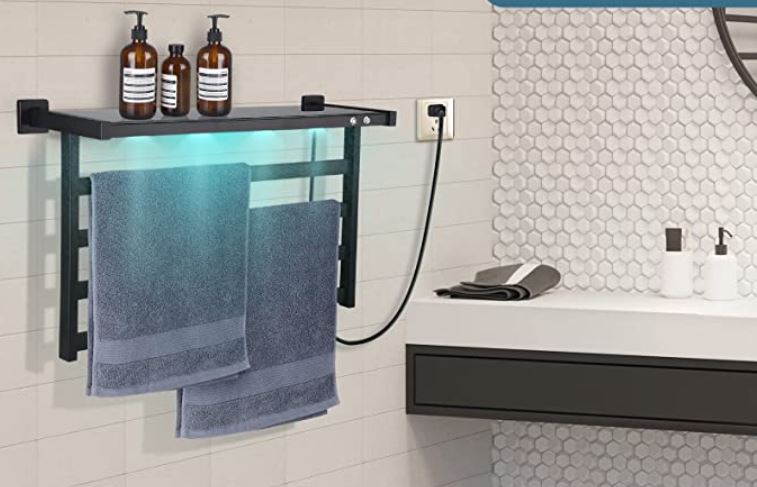
These types of towel warmers rely solely on electric energy (as opposed to heated water from the plumbing system).
They can be hard-wired into the electrical system of your home or they can simply be plugged into an electrical outlet.
Key Features:
- Many different styles
- Many different sizes
- Multiple installation options
Pros:
- Easy to install
- Cost-effective
- Many attractive designs
Cons:
- May not be as efficient as plumbed units
- Typically more expensive
Electric only towel warmers would be a good choice if you don’t want to hassle with messy installation.
They also work really well in apartment and condo bathrooms. You just have to make sure that if you want to hard-wire them, that you hire a professional electrician.
Overall Score: 94/100
Check Out More Reviews Here:
Dual Fuel Towel Warmer
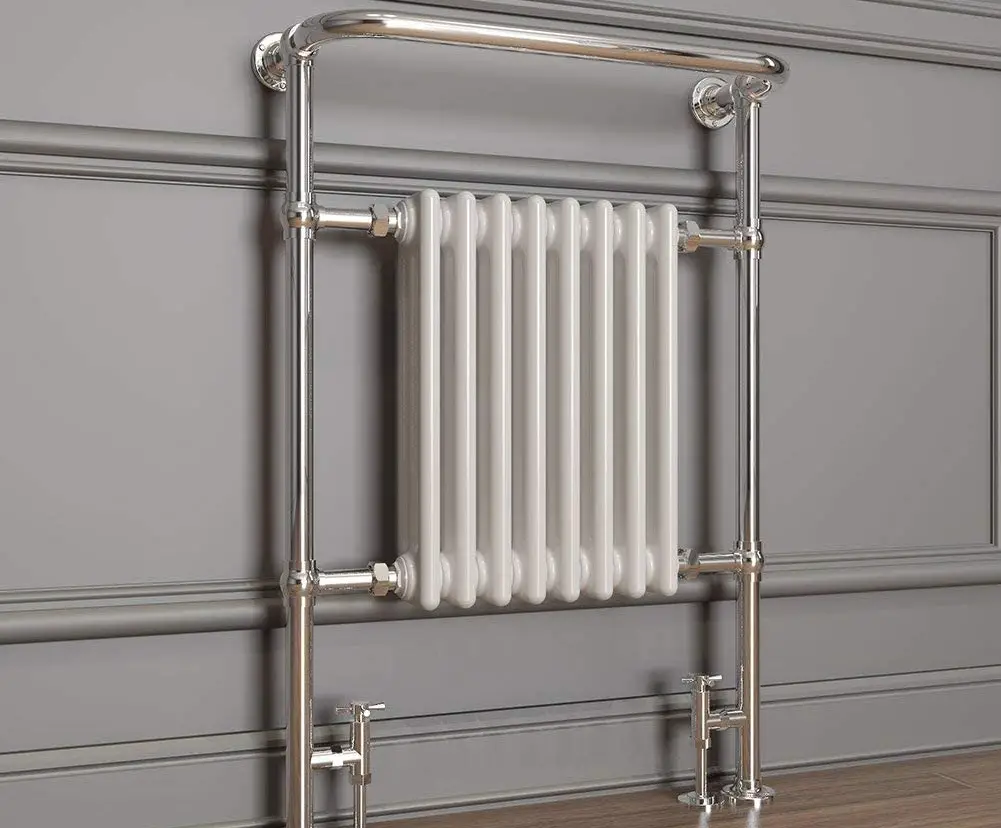
Just as the name implies, dual fuel towel warmers use two types of heat sources: electricity and heated water.
They can run when your central heating system is running. When your central heating system is off, it can use the internal electric heating element to warm your towels.
Key Features:
- Two power options
- They can include timers
- On/off switches
Pros:
- Great for multi-season use
- They can be very energy-efficient
- Internal thermostats
Cons:
- Installation can be difficult
- Will likely require professional installation
Overall Score: 93/100
Check Out More Reviews Here:
Central Heating Vs. Electric Only
Central heating offers convenient operation – for most of the year. During the summer though, when you are likely to have your central heating system turned off, you won’t be able to run the warmer.
Electric only units give you more flexibility but they may not be as energy efficient.
Electric Only Vs. Dual Fuel
The main advantage of electric only devices is that installation can be very easy. In fact, you may just need to plug it into the wall. They can be expensive to run though.
Dual fuel gives you more energy-efficient options throughout the year but they can be very hard to install.
Is There A Battery Operated Towel Warmer?
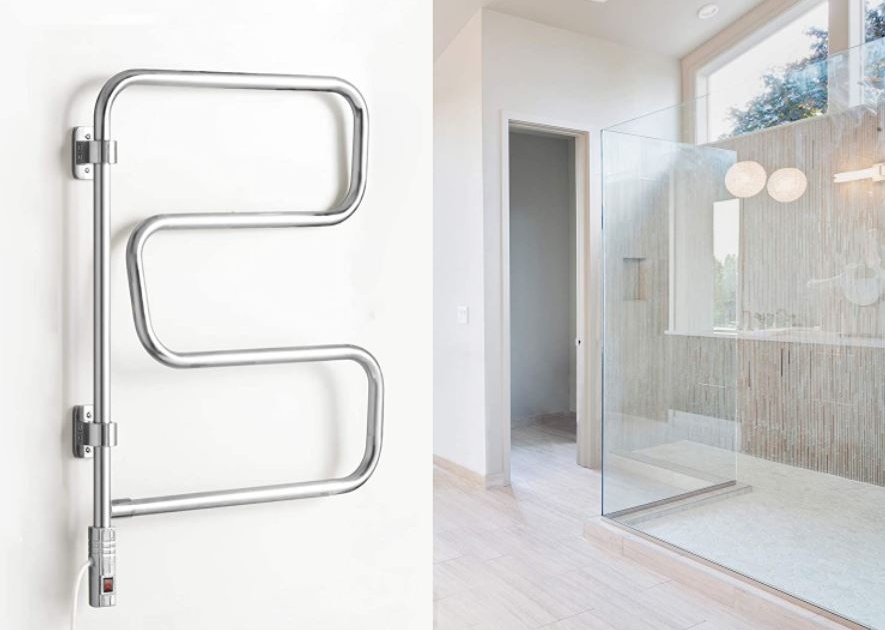
There are a variety of battery-operated towel warmers that don’t need to be plugged in. These are a great option for anyone who is concerned about plugging a heating device into their home electrical system.
They offer a safe alternative and are portable.
Pros:
- Portable
- Safe
- Some have auto shut-off features
Cons:
- Poor battery life
- Low-powered
Freestanding Towel Warmer
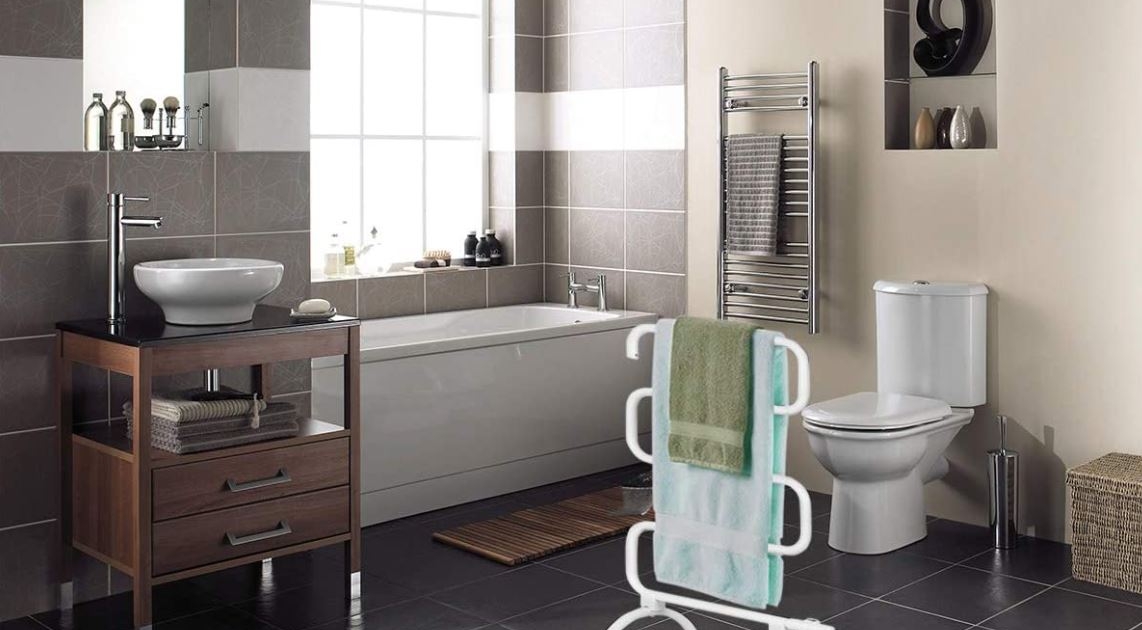
Freestanding towel warmers don’t have to be mounted and don’t necessarily have to be racks either. For example, many of these kinds of warmers are actually just electric buckets: you throw your towels in, turn them on and they get warmed.
Most are electric, plug-in appliances. They would make a great choice for anyone who doesn’t want to deal with electricity or plumbing hookups.
Pros:
- Convenient use
- Modern designs
- They can be used in multiple bathrooms
Cons:
- Typically low capacity
- Doesn’t warm the room
Hot Towel Cabinet
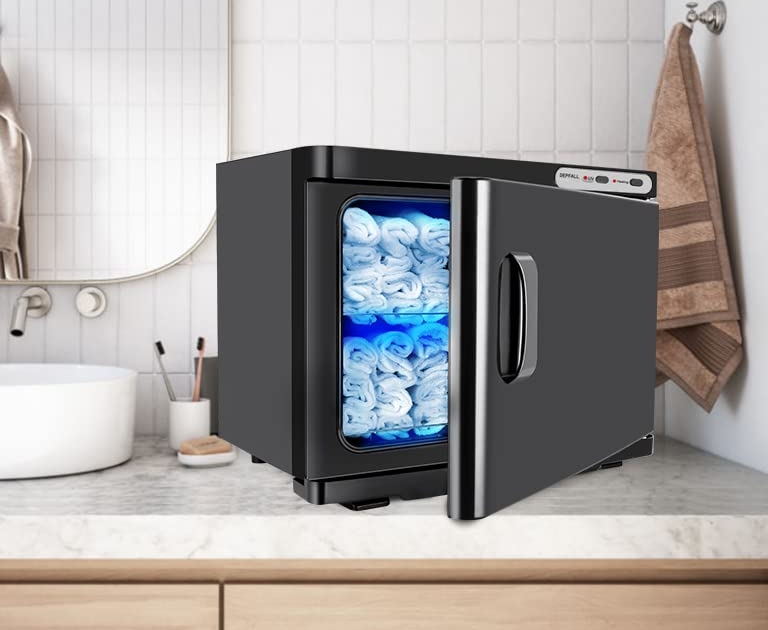
Hot towel cabinets are typically used for commercial applications like at spas and hotels. They are usually powered by electricity.
They would be good for anyone who has a large amount of space to keep them or anyone who needs to warm up a lot of towels or robes at the same time.
Pros:
- Large capacity
- They can include sterilizing functions
- Sealed doors
Cons:
- Bulky
- They can be pricey
Are Heated Towel Rails Worth Buying?
That will depend on your preferences. If you want to be able to wrap yourself in a nice warm towel after a shower, warm your bathroom or reduce the risk of mold and mildew growth, they are definitely worth the purchase.
Let’s look at some other factors:
- How Much do They Cost? – You can get inexpensive rails or cabinets for under $200. But some premium models can cost more than $1000.
- Which Type is the Most Efficient? – Plumbed units tend that run off of your water heater tend to be the most energy-efficient.
- What Size Heated Towel Rail Do I Need? – If you want yours to heat the room, consider a larger model. Larger warmers would also work best for family bathrooms where multiple towels need to be warmed at once. If you only need to warm one towel at a time and not the room, consider a smaller model.
- Which Type is Best Overall? – That will depend on your needs and preferences. We like electric warmers that can be plugged into the wall because they are easy to use and can be moved from room to room.
FAQ’s
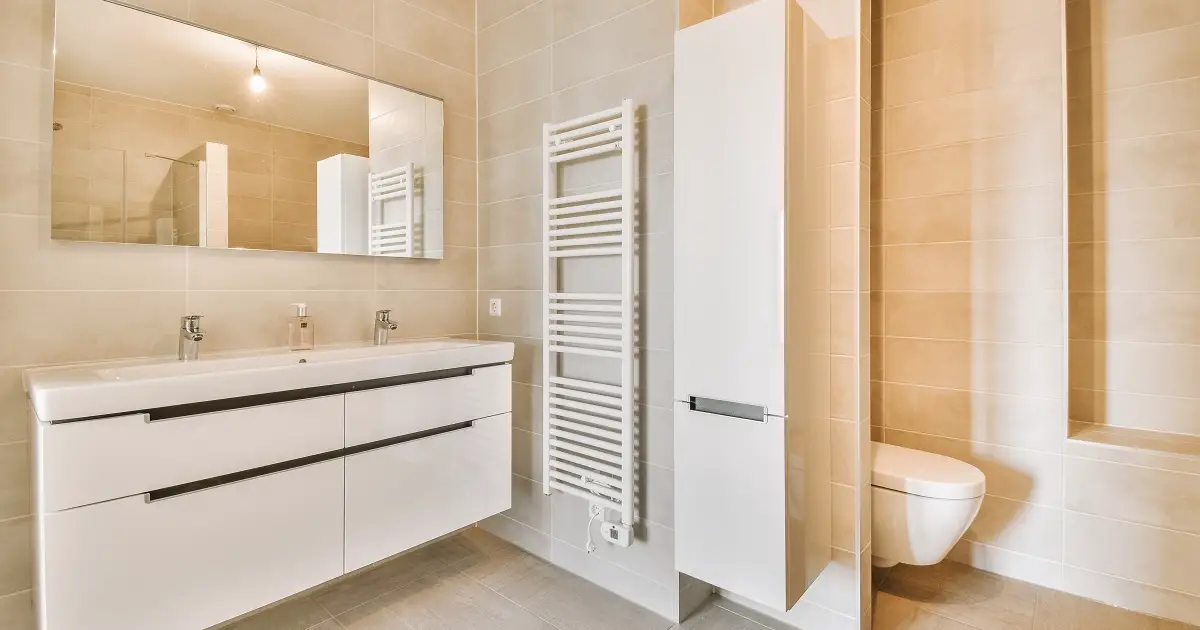
Q: Can A Heated Towel Rail Replace A Radiator?
Yes. They can be rigged to your central heating system just like a normal radiator and will also work to raise the ambient temperature of a room.
Q: Do towel warmers heat the room?
Yes, but not all models. Central heating warmers can usually also be used to warm a room. For smaller bathrooms and interior spaces, some electric towel warmer models can also be used to heat a room.
Q: Are electric towel rails expensive to run?
In general, electric towel rails cost less than a cent to run per hour. Their energy consumption is similar to that of a light bulb.
That being said, electric towel warmers may not be as energy efficient as some plumbed models that use heated water.
Q: Do they use a lot of electricity?
Not typically. Most electric towel warmers will use no more than 100 watts every hour. That is the upper ceiling of electricity usage.
You can typically find electric towel warmers that use no more than 40 watts of electricity every hour.
Q: How long does an electric towel rail take to warm up?
It will vary from model to model but some rails can reach a temperature of 145 degrees Fahrenheit as quickly as 3 minutes.
Q: What liquid goes in electric towel rail?
Some rails require that you use a solution of 85% deionized water and 15% ethelyne glycol.
Q: How To Use A Heated Towel Rail?
Most models have a simple on and off switch. They can also be run off of a timer and thermostat. With rail models, all you need to do is drape your towels on the rail and turn the device on.
With some bucket models, you need to open the lid and place your towels inside, close the lid and turn the warmer on.
Q: Can you put wet towels on a towel warmer?
Yes, that is what they are designed for. However, a word of advice: it’s best not to put sopping wet or dripping towels on these heaters.
It will take too long to drive, it can strain the appliance, use too much electricity and may damage the device.
Q: How long can I leave towels in a towel warmer?
It depends on the type you have. Central heater warmers can be left on all the time because they go on in accordance with your central heating system.
Electric heaters however should not be left on for more than a few hours at a time.
Q: Is it okay to leave a towel warmer on overnight?
Electric towel warmers should never be left on overnight as it can cause an electrical hazard. Central heating towel warmers may be left on overnight in some cases.
Q: Can you leave a hot towel cabinet on overnight?
You should never leave a hot towel cabinet on overnight because it can put too much of a strain on the heating element and be an electrical hazard.
Q: How do you disinfect a towel warmer?
You can hand wash your towel warmer if you have a cabinet or bucket style warmer. It is recommended that you wipe both the inside and outside of your warmer with a cloth, sponge or rag.
Dampen the cloth, sponge or rag with warm water and use a mild detergent to clean the interior and exterior spaces. Dry off any excess water with a dry towel or paper towel.
Q: How do you use a towel spa towel warmer?
You simply need to load your towels into the warmer and close the lid or drawer, depending on your model. Turn the device on or set the temperature/timer.
Your warmer should have an indicator light or alarm to let you know when your towels have been warmed.
Q: Can I put a blanket in a towel warmer?
Only certain, large models will be able to accommodate blankets. Carefully read the manual or instructions as they should tell you what can be placed in the warmer and what can’t.
Most electric towel warmers will not be able to accommodate a full blanket.
Final Thoughts
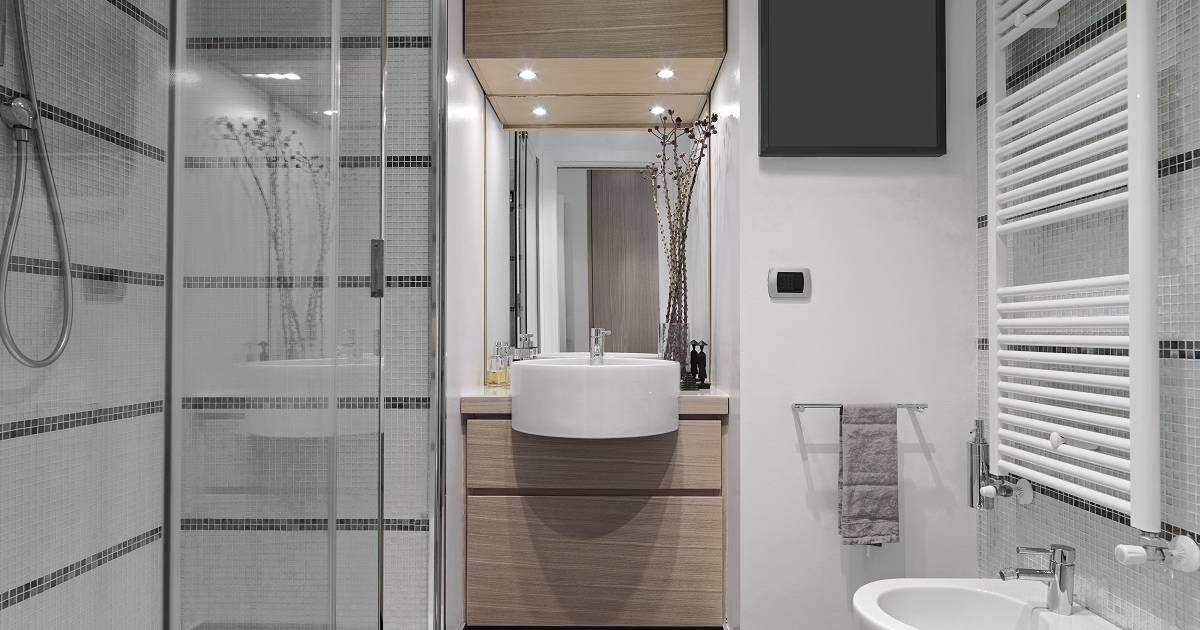
As you can see, there is a lot to consider when shopping for a towel warmer. But if you keep the needs of yourself and your family, your preferences and the size of your bathroom firmly in mind, you will be able to make an informed choice.
For smaller bathrooms, we recommend electric-type towel warmers. For larger bathrooms or for use in larger rooms of your house, you may want to consider a dual fuel or central heater towel warmer.
Be sure to check out the types we have outlined on today’s guide to get the best towel warmer for your home!



